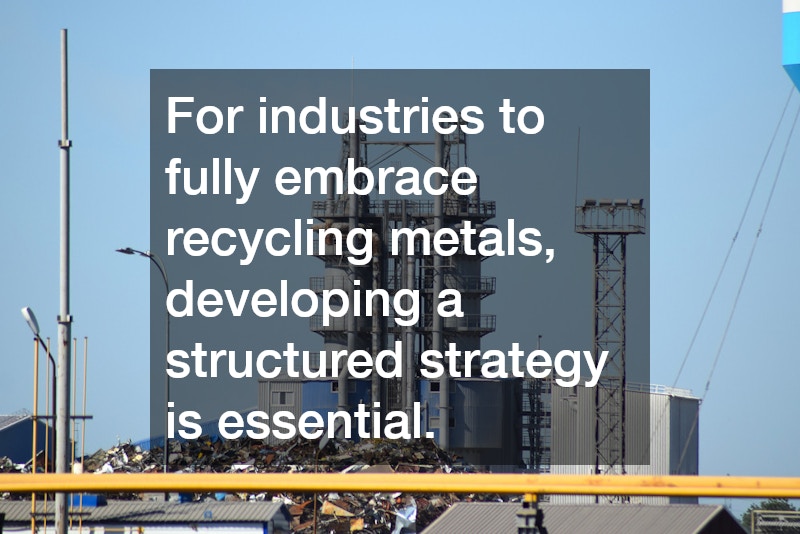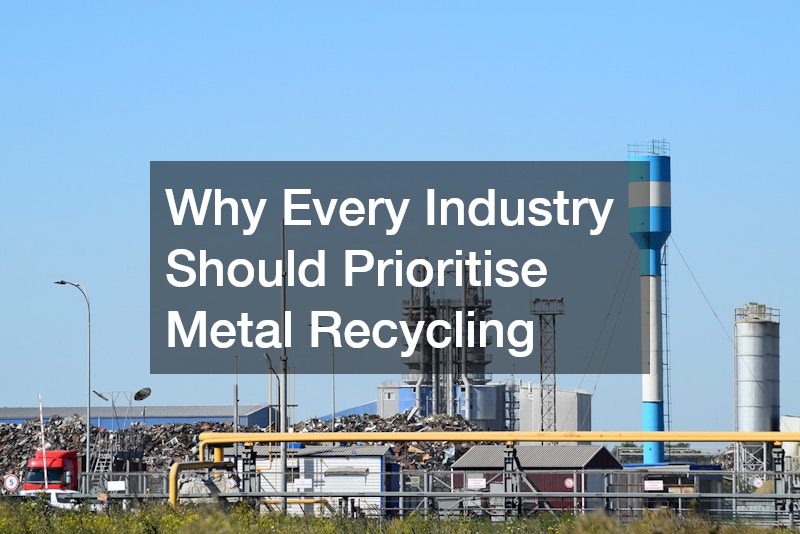In today’s world, sustainability is no longer optional — it’s essential. As industries face growing pressure from governments, consumers and investors to reduce their environmental impact, metal recycling has emerged as a key solution that offers both ecological and economic benefits. Recycling metal plays a crucial role in conserving the planet’s finite natural resources by reducing the need for mining and raw material extraction, which are often energy-intensive and environmentally damaging processes.
Beyond resource conservation, recycling metals lowers overall energy consumption significantly, which helps industries reduce operational costs while minimising greenhouse gas emissions. This combination of environmental and financial advantages means that metal recycling supports long-term economic growth and business resilience. Regardless of the sector — from manufacturing and construction to electronics and automotive — every industry stands to benefit from making this process a priority. Embracing this sustainable practice is not only a responsible choice but a strategic one that can drive innovation, improve brand reputation and meet the rising demand for eco-friendly products.
Environmental Benefits & Resource Conservation
One of the strongest reasons for prioritising recycling metals across industries is its positive environmental impact. Extracting raw metals from the earth requires intensive mining, which causes habitat destruction, soil erosion and pollution. Recycling reduces the need for new mining operations, preserving ecosystems and natural landscapes.
Additionally, recycling metals significantly decreases energy consumption. Producing metal from recycled materials uses up to 95% less energy than manufacturing from virgin ore. This means lower carbon emissions and a smaller carbon footprint for businesses that embrace recycling. In an era where climate change policies are tightening, industries that adopt these practices contribute directly to global efforts to combat environmental degradation.
Economic Advantages & Waste Reduction
Recycling metals also offers clear economic advantages. Using recycled metal reduces raw material costs because scrap metal is often cheaper than newly mined ore. This cost efficiency benefits manufacturers, construction firms and other industries that rely heavily on metal components.
Moreover, recycling helps industries manage waste more effectively. Instead of sending scrap metal to landfill, recycling diverts it back into the production cycle, reducing landfill volumes and associated fees. This waste reduction supports corporate social responsibility goals and can improve public perception of businesses.
By prioritising recycling, industries can also create new jobs in the recycling and manufacturing sectors. The industry stimulates economic activity beyond the initial collection phase, including sorting, processing and resale.
Industry-Specific Uses for Recycled Metals
Industries across the board can harness the benefits of recycled metals in distinctive ways. In manufacturing, businesses producing vehicles, appliances and machinery make extensive use of recycled metals, which helps reduce reliance on raw materials while lowering production costs. The construction sector also increasingly opts for recycled steel and aluminium in structural elements, roofing and fixtures. These recycled materials maintain the necessary strength and durability, all while supporting sustainability goals.
In the electronics industry, recycling precious metals such as gold and copper from outdated devices not only recovers valuable resources but also helps minimise hazardous waste. Similarly, the automotive sector reuses steel and aluminium parts during vehicle production, which contributes to waste reduction and resource conservation. Even industries that might seem less connected to metal use, such as packaging or consumer goods, benefit by incorporating recycled metals into items like cans, containers and product components. Ultimately, the commitment to recycling across these varied sectors helps promote a circular economy where resources are kept in use for longer, easing environmental pressures.
How Industries Can Enhance Their Recycling Efforts
For industries to fully embrace recycling metals, developing a structured strategy is essential. This begins with establishing clear processes for collecting and segregating scrap metal on-site to ensure efficient recycling practices. Partnering with certified recycling companies guarantees responsible processing and supports environmental compliance. It is equally important to educate staff, raising awareness about the benefits of recycling and the correct ways to handle waste materials.
Furthermore, industries should incorporate recycled metals into procurement policies and product designs, ensuring that recycled content becomes a standard consideration. Monitoring recycling rates and setting measurable targets also helps track progress and drive continual improvement. By embedding these approaches into everyday operations, industries not only strengthen their sustainability credentials but often realise cost savings and meet regulatory requirements more effectively.
Prioritising metal recycling is a practical and impactful step for industries aiming to reduce their environmental footprint and improve economic efficiency. The benefits stretch far beyond simple waste reduction. Recycling metal leads to significant energy savings since processing recycled metals requires much less energy than producing new metal from raw ore. This reduction in energy use directly lowers greenhouse gas emissions, helping industries meet increasingly stringent environmental regulations and contribute to the global fight against climate change.
Resource conservation is another critical advantage. By recycling existing metals, industries decrease their reliance on finite natural resources, preserving them for future generations. This approach supports a circular economy where materials are kept in use for as long as possible, reducing the need for harmful mining activities and protecting natural habitats.
.




